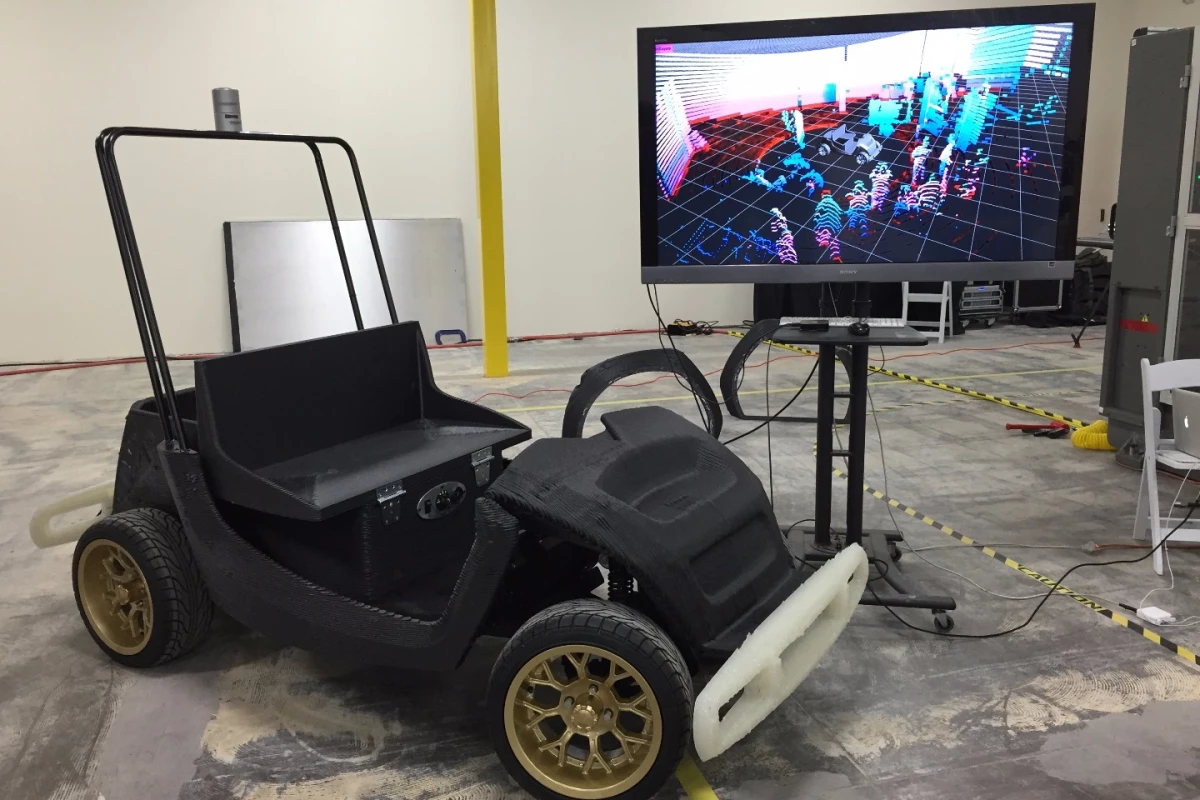As 3D printing techniques improve and the push towards autonomous cars grows stronger, it was only a matter of time before the two technologies were combined to create an autonomous 3D-printed car. That’s exactly what Local Motors has done, putting together an autonomous car to be tested by the boffins at University of Michigan as part of a 12 month trial.
The SmartCart is one of three vehicles being built for theuniversity’s study, and will be used to research and develop low-speedautonomous features. It will also be used to develop an Uber-style mobile phoneinterface that allows students to call a car for transit across campus– a process that involves managing supply and demand, as well as working outthe best way to efficiently direct a fleet of cars around campus.
Because a university is a smaller, more controlled environmentthan the real world there are a number of different low-cost solutions toautonomy being tested, including blue lines on the ground to direct the carsaround.
Although not necessarily practical in thewider world, the team of university testers believes that low-speed autonomouscars designed to work in small, controlled environments could be useful toferry people around amusement parks, airports, aged-care communities orcorporate centers.
Powering the car is a golf-cart motor but the fiber-reinforced Lego-brick plastic body is bespoke. Because of the unique3D-printed production, if the car needs a new mounting for a sensor or someonedreams up a better design for something like the dashboard, it can be createdand fitted in a matter of hours.
As exciting as it would be to see driverless carts cruisingaround university grounds, initially SmartCart won’t be tested among the chaosof campus life just yet. Instead, the vehicle will be tested at Mcity, which is a testcenter for autonomous and connected cars run by Mobility Transformation Center,a public/private initiative at the University of Michigan. The tests will later move on to the University's North Campus.
Source: University of Michigan




